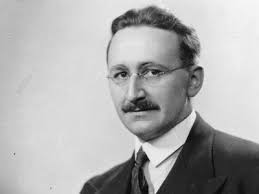F.A. Hayek is a renowned economist who won the Nobel Prize in Economic Sciences in 1974. He is also known for his works in other fields of social sciences. One of Hayek’s most popular works was his paper “The Use of Knowledge in Society” published in the September 1945 issue of The American Economic Review. Hayek, and his mentor and Austrian Economics colleague, Ludwig von Mises, were part of the “Socialist Calculation Debate,” the economic debate between supporters of centrally planned socialism and free market-based capitalism. Both Austrian Economists debated in favour of free market capitalism and argued that the market system allocates resources more efficiently than central planners.
According to Mises, rational economic calculation is essential to allocate scarce resources efficiently, and this requires private ownership of property and market prices. But Hayek believed that knowledge is dispersed among the people, and it is impossible for a single central planner or a small group of planners to acquire the knowledge required to allocate the limited resources adequately. However, years after the fall of Soviet Russia and the end of the Calculation debate, there are differences between modern Hayekians and Misesians in this regard. Arguably, a crucial argument of Hayek is not only misunderstood by market opponents, but also by some supporters of the market mechanism.
Other scholars from the Austrian school of thought, like Hans-Herman Hoppe and Murray Rothbard, have disregarded “the knowledge problem.” They believe that the only requirement for a market system to operate is private property. Hoppe, a constant critic of Hayek, commented that the ‘fundamental error’ is “If socialism’s central problem is the practical impossibility of concentrating decentralized knowledge in the mind of a single central planner, then it is difficult to explain why there are firms and why the owner of a firm does not face exactly the same problem as the central planner under socialism. The owner of a firm also cannot concentrate in his mind all of the decentralized knowledge of the particular circumstances of time and place of all of his employees. Nonetheless, the owner of the firm designs a central plan, and within the guidelines of this overall plan, the firm’s employees then use their own decentralized knowledge to implement and execute this plan. And yet: the owner of a firm does not face the problems of the socialist central planner!”
However, Hayek, in his Use of Knowledge paper, argued that the problem doesn’t lie in planning per se, but “whether planning is to be done centrally, by one authority for the whole economic system, or is to be divided among many individuals.” While it is arguably impossible for one authority to collect and process all the knowledge required to make decisions, individuals, or smaller groups (families, communities, and even companies) can coordinate and make decisions for themselves. Per Hayek, as long as undistorted prices existed in the market, the prices act as a signal to communicate the required information for individuals to make decisions, whether on behalf of themselves or for a group.
Rothbard quoted Joseph T. Salerno as having said that the price system is not, and praxeologically, cannot be, “a mechanism for economizing and communicating the knowledge relevant to production plans.” Though a price system is important for most Austrian and neo-classical economists, Rothbard saw prices less as signals to economic players and more as tools for economic calculation.
However, Hayek described ‘tacit’ knowledge as knowledge that is difficult to express in words or numbers. It is a knowledge of a certain localized time, place, or personal context. According to Hayek, knowledge in an economy is transferred through the price mechanism. An increase or decrease in prices communicates to the buyer and seller about the availability and scarcity of a product. Prices are, therefore, crucial in the market system since they signal the market players to make decisions. Prices help an entrepreneur to decide if there is demand for a product or a service, and a consumer decide on their purchases and manage their budgets.
The argument that large private firms like Walmart engage in planning, and hence the State should also be able to do it, aren’t just from the economic Left, but there are some free market believers as well. As explained earlier, this planning is only possible within a market system and when prices exist, without which, we will end up with the calculation problem again. Even in private firms, the owner isn’t capable of doing all the tasks. Various experts handle different departments with their skills. The owner may or may not have the expertise to make decisions about their firm. If they make bad decisions, they lose money, but if they allocate resources efficiently, they profit.
No statistical formulas, computer programs, or any other tools are capable of collecting the tacit knowledge that drives decision-making. Even if scientific knowledge and data are supplied to an Artificial Intelligence(AI) robot, it would still be unable to allocate resources efficiently. This is because the knowledge of time and place is available to a specific person at a specific time, place, and in a specific context. This shows that the working of the economy isn’t possible without human involvement. It is a result of human action, even when it is not planned by human design.
Hayek’s knowledge problem is relevant till the existence of human resources. The price system working freely allows knowledge to flow in the economy. Contemporary experts like Israel Kirzner have built their work on entrepreneurship theories on Hayek’s concept.
Each individual has different expertise and knowledge, and therefore, a system of decentralized planning is required rather than a collective one. A society can, therefore, not be run completely by a few individuals even if they are elected on the basis of majority public voting or even if they qualify to be called “intellectuals.” The argument of the ‘knowledge problem’ is not primarily about the difficulty in the calculation and allocation of scarce resources in a command and control socialist economy, as argued by Mises. The argument advocates the importance of individual capability, individual liberty, and rejecting intellectuals’ superiority complex.
Read More: Sex Work in India: A Bird’s Eye View
Post Disclaimer
The opinions expressed in this essay are those of the authors. They do not purport to reflect the opinions or views of CCS.






